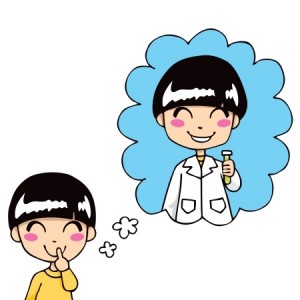This fun piece from the Harvard Medical School (HMS) alumni magazine is worth a read. The article, “Stress Fractures” by Dr. Jules Dienstag, a member of the HMS Admissions Committee, briefly chronicles a history of the “stress” interview at HMS, specifically whether a well-known professor Dr. Daniel H. Funkenstein used the dubious tactic. The famous nailed-shut window story is explored.
Blog Archives
Medical School Help: What are the Next Steps Once the AMCAS is In?
 Once you’ve submitted your AMCAS, what can you do next to best prepare for what’s to come in the medical school admissions process?
Once you’ve submitted your AMCAS, what can you do next to best prepare for what’s to come in the medical school admissions process?AMCAS tips
On June 7, you can submit your AMCAS. In preparation for that rapidly upcoming date, here are a few quick tips for writing your AMCAS activities:
1. Use full sentences. It’s a formal application, and you want to make your written materials as readable as possible.
2. Avoid abbreviations. Again, you want to be formal, and abbreviations you think are common might not be familiar to the reader.
3. Make sure you spell out your accomplishments clearly. If your reader doesn’t understand an activity, you will not get “full credit” for what you’ve done.
4. Choose “most meaningful” activities that show a breadth of experience, e.g. one that is related to research, another that is clinical, and a final that is volunteer.
5. Write about yourself and your role – not an organization. For example, don’t use the space to discuss Habitat for Humanity. Use it to discuss the specifics of your role at Habitat for Humanity.
6. Use numbers to be persuasive. Saying that the conference you organized had 300 participants says it all.
7. Get help. Do not submit your application without having it reviewed. Don’t submit suboptimal materials for a process that is this important and competitive.
Get a Better Letter
After over a decade of reading medical school and residency letters of recommendation (LOR), I can tell you that the biggest error I see in the LOR process occurs when applicants settle for mediocre letters. In other words, they know that a supervisor/faculty member/attending isn’t going to write them a strong letter, but they fill the LOR slot with the middling endorsement anyway.
Please take a look at my most recent Student Doctor Network article, “Get a Better Letter” for concrete ideas on how to approach the letter of recommendation process.
Don’t Just Do It
Many medical school applicants ask me if they have to do things they don’t want – like bench research – to get into med school. While having reasonable academic numbers and some clinical experience is critical, candidates can succeed while lacking traditional aspects of the application, like research.
Now, having a strong research project (especially a publication) under one’s belt will almost invariably help propel an applicant’s candidacy forward, but finding very strong alternatives is a reasonable option.

